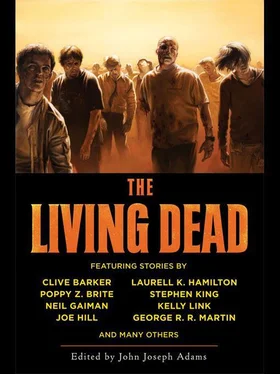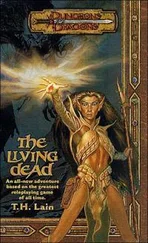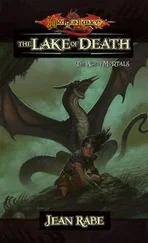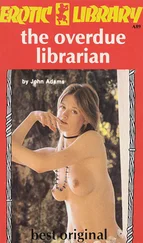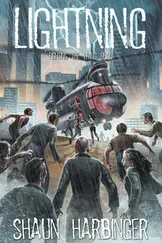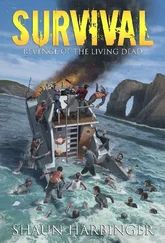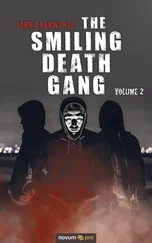Ted doesn’t show up looking for his wife. In fairness to him, that’s due to his having parked in front of his house about two minutes after Beth sped off with Mary. Once he realized what was taking place, he bolted his car for the house, whose front door he’d noticed open and which had him dreading the worst. The worst met him at the door, in the form of the pair who’d devoured his children, one of whom was holding Brian’s stuffed frog, which was dark with blood. You may consider it a kindness that Ted died without seeing what was left of his beloved daughter and son upstairs.
Mary can eat and drink, use the toilet if you take her to it. Speak to her, and she’ll bob her head in your direction. There are times, after Beth’s sat with her for an hour, maybe read to her from the Bible (which Beth secretly hopes might produce a miraculous cure), the girl looks at Mary half-slumped in her chair, or reclining on her bed, and wonders if Mary isn’t lucky to be like this, safe from the chaos that’s descended on the world. She has no idea—she can have no idea that deep within Mary’s psyche, she’s standing at that stove for the ten-thousandth time, watching a pot full of water begin to boil, waiting for her children to start screaming.
(The Stage Manager sighs, looks up, looks down, rubs his hands together half-heartedly, sighs again.)
Stage Manager: I never finished telling you about the town, did I? Not that it makes much difference at this point, but maybe one or two of you are curious.
(Once more, the Stage Manager settles himself on the ground, against the headstone; although he appears to have more trouble finding a comfortable position than previously.)
Stage Manager: All right. What more is there to say about Goodhope Crossing? The longer-term history of the town isn’t that much different from any other in this neck of the woods. There were farms around these parts as far back as the Dutch, but Goodhope Crossing, as the name suggests, owes itself to the railroads. In the years after the Civil War, when track was stitching up the country everywhere you looked, three north-south lines and one east-west line met one another right here.
(From the orchestra pit, a quartet of wooden train whistles sound softly.)
Stage Manager: There was a long, low hill to the east of the junction, a stream and some flatter land to the west. The town was plotted on that axis, the poorer folk crowding their small houses together on the hill, the better off setting up Main Street and its larger dwellings on the other side of the stream. From those two locations, the town spread outward, most of the commercial establishments opening on the other side of the hill; while the majority of new homes went up on and just off Main Street. Lot of Irish settled here; Poles and Italians, too. Big Catholic population: the local church, St. Patrick’s, started on Main Street and by the turn of the century had moved across the stream to the top of another hill just south of the one most of its parish lived on. St. Pat’s was part of the Archdiocese of New York; right before everything fell apart, they were the third or fourth largest congregation in the fold.
Interestingly—you might even say, ironically—enough, pretty much the entire surviving population has relocated to the hill, which remained a location of more… affordable housing. Control the high ground: it’s what a military strategist will tell you, and it’s a good plan, for zombies as much as anything. Once the half-dozen or so who’d staggered up Concord Street were dealt with, and all the dwellings had been checked and double-checked to be sure they were clear, folks started putting up the best barrier they could as fast as they could around the foot of the hill, tipping over cars; running barbed wire; propping up old boxsprings, mattresses; piling whatever looked as if it might hold a walking corpse at bay long enough for you to have a clear shot at it: sofas, bureaus, bookcases, china cabinets.
(From either side of the theater, the sounds of men and women grunting, furniture creaking atop other furniture.)
Stage Manager: Hillary Schwabel, who used to manage the local True Value hardware, strung some wires all the way around what people already had christened the Wall and hooked them to several of her louder alarms; she also hung a dozen motion-detector lights from trees and houses next to the Wall. Things are so sensitive a cat’ll trip them, but it beats the alternative. As a rule, zombies travel in numbers; when you see one of them, you see ten, twenty, sometimes as many as fifty, a hundred. A significant percentage of that group is going to be limber enough to make a try at getting past the Wall—and all it takes is for one of them to succeed, grab someone and start biting, for you to want to know they’re moving in your direction while they’re still a safe distance away. It’s another myth that they only, or mostly, move at night. Their eyesight’s poor-to-nonexistent—apparently, the ravages death inflicts on the eyes are exacerbated by the process of reanimation. Although they never stop moving completely, if you should have the misfortune to come across them after dark, they’re likely to be shuffling their feet, practically standing in place. No, they prefer the light; the dawn pouring through the trees sets them going. A bright day is practically a guarantee you’re going to see some of them.
All of that said, a few of them have been known to travel by night, especially if the moon is full. And even inching forward a little bit at a time will bring you somewhere, eventually. Better safe than sorry, right?
Have you noticed how disasters bring out the clichés in droves? Why is that? Is the trite and overused that consoling? Or is it that, even though the brain is short-circuiting, it still wants to grasp what’s going on, so it reaches for whatever tools are at hand, no matter how worn and rusted? Or is the language breaking down along with everything else? I’ve never been what you’d call a poet, but I have always prided myself on my phrasing, on a knack for finding a fit and even memorable form for whatever sentiment I’m attempting to convey. Lately, though—lately, I swear I sound more and more like a parody of a Good Ole Boy, your folksy uncle with his bucket of country wisdom.
Nor is that the worst. Before everything went down the crapper, one of my—you might say duties; although I considered it more a responsibility, if that distinction means anything to you—anyway, one of the things I did was to help those who’d shuffled off their mortal coils come to grips with their new condition. Mostly, this meant talking with them, taking them for a last look at their loved ones, about what you’d expect. In a few cases, I let them have one of their days over again, which, knowing what they knew now, tended to be a more unhappy experience than they’d anticipated. Even after I’d spoken to them, showed them what I could, there were a few who refused to walk down the long dark hall to join the ranks of those who’d gone before, who insisted on remaining in their house, or at the spot they’d ceased breathing, which was a shame, but was allowed for.
Once the dead started to rise, though—for the one thing, death no longer separated what lasted from what didn’t; instead, the two remained bound together as the one began its new existence. For another thing, the destruction of that second life—or un-life—didn’t allow matters to proceed on their natural course. Instead… well, maybe you want to see for yourselves.
(The theater’s lights come on. Their harsh brightness reveals the center aisle, side aisles, front, and rear of the theater crowded with figures—with zombies, it appears, since the men, women, and children surrounding the audience bear the familiar signs of decay. Whatever shock and fear the appearance of so many of them in such proximity engenders, however, is gradually tempered by their complete lack of movement. Indeed, with the exception of one figure shuffling its way from the very back of the theater up the center aisle, the apparent zombies might as well be mannequins.)
Читать дальше
Конец ознакомительного отрывка
Купить книгу
